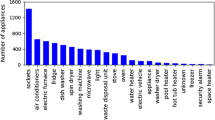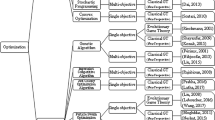Abstract
Efficient resource allocation in dynamic large-scale environments is one of the challenges of Grids. In centralized economic-based allocation approaches, the user requests can be matched to the fastest, cheapest or most available resource. This approach, however, shows limitations in scalability and in dynamic environments. In this paper, we explore a decentralized economic approach for resource allocation in Grid markets based on the Catallaxy paradigm. Catallactic agents discover selling nodes in the resource and service Grid markets, and negotiate with each other maximizing their utility by following a strategy. By means of simulations, we evaluate the behavior of the approach, its resource allocation efficiency and its performance with different demand loads in a number of Grid density and dynamic environments. Our results indicate that while the decentralized economic approach based on Catallaxy applied to Grid markets shows similar efficiency to a centralized system, its decentralized operation provides greater advantages: scalability to demand and offer, and robustness in dynamic environments.
Similar content being viewed by others
References
Foster I, Kesselman C (1997) Globus: A metacomputing infrastructure toolkit. Intl J. Supercomputer Applications 11(2):115–128
Allen G, Benger W, Goodale T, Hege H, Lanfermann G, Merzky A, Radke T, Seidel E (2000) The cactus code: A problem solving environment for the grid. In: Proc. High Performance Distributed Computing (HPDC-2000) IEEE Computer Society, pp. 253–260
Hoschek W, Jaen-Martinez J, Samar A, Stockinger H, Stockinger K (2000) Data management in an international data grid project. In: IEEE/ACM International Workshop on Grid Computing Grid’2000, Bangalore, India
Foster I, Iaminitchi A (2003) On death, taxes and the convergence of peer-to-peer and grid computing. In: 2nd International Workshop on Peer-to-Peer Systems (IPTPS’03), Berkeley, USA
Eymann T, Padovan B, Schoder D (2000) The catallaxy as a new paradigm for the design of information systems. In: Proc. of The World Computer Congress 2000 of the International Federation for Information Processing, Beijing PR China
Grimshaw AS, Wulf WA, et al. (1997) The legion vision of a worldwide virtual computer. Comm. of the ACM 40(1):39–45
Frey J, Tannenbaum T, et al. (2002) Condor-G: A computation management agent for multi-institutional grids. Cluster Computing 5(3):237–246
Foster I, Kesselman C, Lee C, Lindell B, Nahrstedt K, Roy A (1999) A distributed resource management architecture that supports advance reservation and co-allocations. In: International Workshop on Quality of Service, London, UK
Ripeanu M (2001) Peer-to-peer architecture case study: Gnutella network analysis. In: 1st First Intl. Conference in on Peer-to-Peer Networks, Linköpings Universitet, Sweden
Clarke I, Sandberg O, Wiley B, Hong TW (2000) Freenet: A distributed anonymous information storage and retrieval system. In: Proc. of the ICSI Workshop on Design Issues in Anonymity and Unobservability. International Computer Science Institute, Berkeley, CA
Anderson D, Cobb J, Korpela E, Lebofsky M, Werthimer D (2002) SETI@home: An experiment in public-resource computing. Comm. of the ACM 45(11), ACM Press, USA
Chien A, Calder B, Elbert S, Bhatia K (2003) Entropia: Architecture and performance of an enterprise desktop Grid system. Journal of Parallel and Distributed Computing, 63(5), Academic Press, USA
Huberman BA (1988) The ecology of computation. Studies in computer science and artificial intelligence. Elsevier Science Ltd Amsterdam
Clearwater SH (1996) Market-based control. A paradigm for distributed resource allocation. Singapore: World Scientific
Miller MS, Drexler KE, Markets and computation: Agoric open systems. The ecology of computation. B. A. Huberman. Amsterdam, North Holland, pp 133–176
Stonebraker M, Devine R, et al. (1994) An economic paradigm for query processing and data migration in Mariposa. In: 3rd International Conference on Parallel and Distributed Information Systems, Austin, USA
Regev O, Nisan N (1998) The POPCORN market—an online market for computational resources. In: Intl. Conference on Information and Computation Economies, Charleston, USA, ACM Press
Waldspurger CA, Hogg T, et al. (1992) Spawn: A distributed computational economy. IEEE Transactions on Software Engineering 18(2):103–117
Buyya R, Abramson D, Giddy J (2001) A case for economy grid architecture for service-oriented grid computing. In: Proc. 10th IEEE International Heterogeneous Computing Workshop (HCW 2001). San Francisco
Wolski R, Plank JS, Brevik J, Bryan T (2001) Analyzing market-based resource allocation strategies for the computational grid. The International Journal of High Performance Computing Applications, Sage Science Press Fall 15(3):258–281
Bell HB, Cameron DG, Capozza L, Millar AP, Stockinger K, Zini F (2002) Simulation of dynamic grid replication strategies in optorSim. In: proceedings of the 3rd International Workshop on Grid Computing, Baltimore USA
Gomoluch J, Schroeder M (2003) Market-based resource allocation for grid computing: A model and simulation. In: 1st International Workshop on Middleware for Grid Computing, Rio de Janeiro Brazil
Schnizler B, Neumann D, Weinhardt C (2004) Resource allocation in computational grids—a market engineering approach. In: Proceedings of The Third Workshop on e-Business (WeB 2004), Washington
Cheng JQ, Wellman MP (1998) The WALRAS algorithm: A convergent distributed implementation of general equilibrium outcomes. Computational Economics 12:1–24
Ping TT, Sodhy GC, Yong CH, Haron F, Buyya R (2004) A market-based scheduler for JXTA-based peer-to-peer computing system. ICCSA 2004 LNCS 3046, pp 147–157
Hausheer D, Stiller B (2005) Decentralized auction-based pricing with peermart. In: 9th IFIP/IEEE International Symposium on Integrated Network Management (IM 2005), Nice France
Myerson R, Satterthwaite M (1983) Efficient mechanisms for bilateral trading. Journal of Economic Theory 29:265–281
Wilson R (1985) Incentive efficiency of double auctions. Econometrica 53(5):1101–1116
Hayek FA, Bartley WW, Klein PG, Caldwell B (1989) The collected works of F.A. Hayek. University of Chicago Press Chicago
Hoppmann E (1999) Unwissenheit, wirtschaftsordnung und staatsgewalt. freiheit, wettbewerb und wirtschaftsordnung. V. Vanberg. Freiburg, Haufe Verlag, pp 135–169
Schmid B, Lindemann M (1998) Elements of a reference model for electronic markets. In: Proceedings of the 31st Hawaiian International Conference on Systems Sciences. IEEE Press, Los Alamitos CA
Rosenschein JS, Zlotkin G (1994) Rules of encounter—designing conventions for automated negotiation among computers. MIT Press, Cambridge, Mass
Guttman R, Maes P (1998) Agent-mediated integrative negotiation for retail electronic commerce. In: Proceedings of the Workshop on Agent Mediated Electronic Trading (AMET’98). Minneapolis USA
Sierra C (2001) A roadmap for agent-mediated electronic commerce. In: Sierra C, Dignum F (eds) Agent Mediated Electronic Commerce—The European AgentLink Perspective. Heidelberg: Springer
Wellman MP (1996) Market-oriented programming: Some early lessons. In: Clearwater SH (ed) Market-Based Control: A Paradigm for Distributed Resource Allocation. Singapore: World Scientific, pp 74–95
Pruitt DG (1981) Negotiation behavior, Academic Press, New York
Foster I, Kesselman C, Nick J, Tuecke S (2002) Grid services for distributed system integration. Computer 35(6)
T-Online AG: T-Online PDF Creator: Easy document conversion. 2003, http://www.t-online.net/c/07/30/40/730406.html
Czajkowski K, Fitzgerald S, Foster I, Kesselman C (2001) Grid information services for distributed resource sharing. In: Proceedings of the 10th IEEE International Symposium on High-Performance Distributed Computing (HPDC-10). IEEE Press
Ratnasamy S, Francis P, Handley M, Karp R, Shenker S (2001) A scalable content-addressable network. In: Proceedings of ACM SIGCOMM, San Francisco USA
Tyan HY, Hou CJ (2001) JavaSim: A component-based compositional network simulation environment. Western Simulation Multiconference—Communication Networks And Distributed Systems Modeling And Simulation
Smith R (1980) The contract net protocol: High-level communication and control in a distributed problem solver. IEEE Transactions on Computers 29(12)
Padovan B, Sackmann S, Eymann T, Pippow I (2001) A prototype for an agentbased secure electronic marketplace including reputation tracking mechanisms. In: Proceedings of the 34th Hawaiian International Conference on Systems Sciences. IEEE Computer Society, Outrigger Wailea Resort, Maui
Eymann T (2001) Co-evolution of bargaining strategies in a decentralized multi-agent system. In: Proceedings of the AAAI Fall 2001 Symposium on Negotiation Methods for Autonomous Cooperative Systems, North Falmouth, MA
Author information
Authors and Affiliations
Corresponding author
Rights and permissions
About this article
Cite this article
Ardaiz, O., Artigas, P., Eymann, T. et al. The catallaxy approach for decentralized economic-based allocation in Grid resource and service markets. Appl Intell 25, 131–145 (2006). https://doi.org/10.1007/s10489-006-9650-9
Issue Date:
DOI: https://doi.org/10.1007/s10489-006-9650-9




